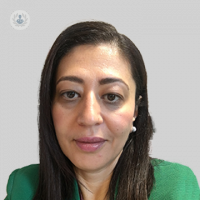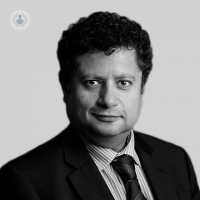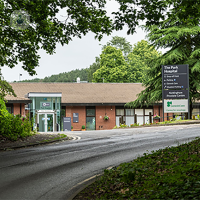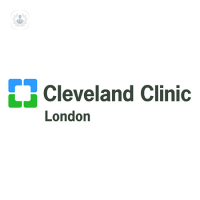What are movement disorders?
Movement disorders refer to either an excess of movement or an impairment of movement. There are many different types of movement disorder, but they are all neurological conditions which affect different parts of the body, causing abnormal movements which are either involuntary or voluntary. Some movement disorders include Parkinson’s, ataxia, Huntington’s disease, and Tourette’s syndrome.
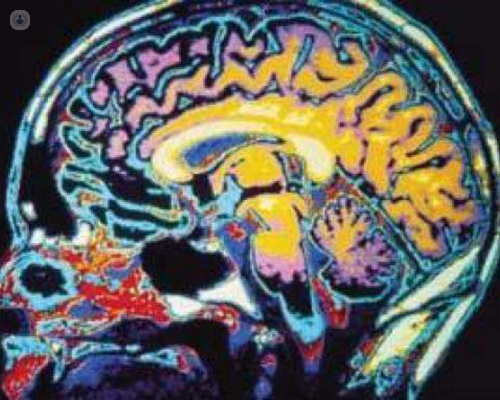
What are the symptoms of movement disorders?
There are many different movement disorders, which all come with their own set of symptoms or characteristics. Movement disorders affect the speed of movements, making them quicker, or slower in some cases, how fluidly someone can move, and how easily they are able to move. Other symptoms of particular disorders include tremors and jerks, twitches, and tics.
What causes movement disorders?
Movement disorders are neurological conditions, so the cause is most frequently a defect in a certain area of the brain, or in the base of the brain (cerebellum). These defects are often acquired through genetics, but abnormal movements can also be caused by stress, drugs, alcohol consumption, and chronic disease. Some disorders, such as Parkinson’s, are called neurodegenerative conditions, and these are often genetic.
How are movement disorders treated?
Movement disorders are generally treated through medication and drug therapy. As there are many different types of movement disorder, each one needs the correct clinical diagnosis and treatment is prescribed for the individual case. Certain movement disorders have been treated using therapies which use electrodes to stimulate affected areas of the brain.
Specific diets and nutrition has also proven useful in the case of some movement disorders such as Parkinson’s. Exercise can help to stop the patient from losing muscle mass, and it can also improve mobility.
Movement disorders
Dr Maha Awadalla - Paediatric neurology
Created on: 11-13-2012
Updated on: 09-15-2023
Edited by: Sophie Kennedy
What are movement disorders?
Movement disorders refer to either an excess of movement or an impairment of movement. There are many different types of movement disorder, but they are all neurological conditions which affect different parts of the body, causing abnormal movements which are either involuntary or voluntary. Some movement disorders include Parkinson’s, ataxia, Huntington’s disease, and Tourette’s syndrome.

What are the symptoms of movement disorders?
There are many different movement disorders, which all come with their own set of symptoms or characteristics. Movement disorders affect the speed of movements, making them quicker, or slower in some cases, how fluidly someone can move, and how easily they are able to move. Other symptoms of particular disorders include tremors and jerks, twitches, and tics.
What causes movement disorders?
Movement disorders are neurological conditions, so the cause is most frequently a defect in a certain area of the brain, or in the base of the brain (cerebellum). These defects are often acquired through genetics, but abnormal movements can also be caused by stress, drugs, alcohol consumption, and chronic disease. Some disorders, such as Parkinson’s, are called neurodegenerative conditions, and these are often genetic.
How are movement disorders treated?
Movement disorders are generally treated through medication and drug therapy. As there are many different types of movement disorder, each one needs the correct clinical diagnosis and treatment is prescribed for the individual case. Certain movement disorders have been treated using therapies which use electrodes to stimulate affected areas of the brain.
Specific diets and nutrition has also proven useful in the case of some movement disorders such as Parkinson’s. Exercise can help to stop the patient from losing muscle mass, and it can also improve mobility.
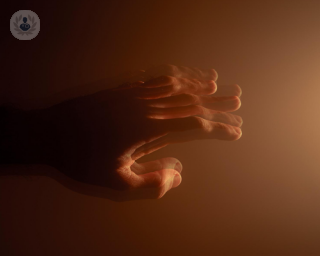

Movement disorders: More than just Parkinson's
By Dr Vaclav Dostal
2025-01-15
Celebrities like Muhammad Ali, Ozzy Osbourne and Michael J. Fox have raised awareness of Parkinson's disease, and it's a commonly-known movement disorder. However, there are many more. Consultant neurologist Dr Daclav Dostal takes a detailed look at the different movement disorders in this informative article. See more


Putting a stop to movement disorders
By Dr Dora Lozsadi
2024-12-27
Most of us have heard of Parkinson’s and Huntington’s disease, but there’s a wide range of other conditions that can cause problems with your movement. We asked expert neurologist Dr Dora Lozsadi for an overview of the signs and symptoms of a movement disorder, and the treatments currently available. See more
Experts in Movement disorders
-
Professor Keyoumars Ashkan MBE
NeurosurgeryExpert in:
- Brain tumour
- Spinal surgery
- Movement disorders
- Minimally invasive spinal surgery
- Deep brain stimulation (DBS)
- CyberKnife
-
Professor James Teo
NeurologyExpert in:
- Movement disorders
- Parkinson's disease
- Stroke
- Traumatic brain injury
- Brain MRI
- Neurorehabilitation
-
Dr Carla Cordivari
NeurologyExpert in:
- Spasticity
- Botulinum toxin (Botox™)
- Movement disorders
- Tremor
- Peripheral neuropathy
- Myopathies
-
Professor Dennis Chan
NeurologyExpert in:
- Alzheimer's disease
- Dementia
- Memory disorder
- Movement disorders
- Headache
- Parkinson's disease
-
Dr Dominic Paviour
NeurologyExpert in:
- Ataxia
- Movement disorders
- Neurological disorders
- Migraine
- Multiple sclerosis
- See all

Cleveland Clinic London Hospital
Cleveland Clinic London Hospital
33 Grosvenor Place, SW1X 7HY
No existe teléfono en el centro.
By using the telephone number provided by TOP DOCTORS, you automatically agree to let us use your phone number for statistical and commercial purposes. For further information, read our Privacy Policy
Top Doctors

The Park Hospital - part of Circle Health Group
The Park Hospital - part of Circle Health Group
Sherwood Lodge Drive, Burntstump Country Park, Arnold, Nottinghamshire NG5 8RX
No existe teléfono en el centro.
By using the telephone number provided by TOP DOCTORS, you automatically agree to let us use your phone number for statistical and commercial purposes. For further information, read our Privacy Policy
Top Doctors

Cleveland Clinic Portland Place Outpatient Centre
Cleveland Clinic Portland Place Outpatient Centre
24 Portland Place, W1B 1LU
No existe teléfono en el centro.
By using the telephone number provided by TOP DOCTORS, you automatically agree to let us use your phone number for statistical and commercial purposes. For further information, read our Privacy Policy
Top Doctors
-
Cleveland Clinic London Hospital
33 Grosvenor Place, SW1X 7HY, Central LondonExpert in:
- Cardiology
- Colorectal surgery
- Minimal access surgery (keyhole surgery)
- Gallbladder surgery
- Diagnostic Imaging
- Ultrasound
-
The Park Hospital - part of Circle Health Group
Sherwood Lodge Drive, Burntstump Country Park, Arnold, Nottinghamshire NG5 8RX, ArnoldExpert in:
- General Surgery
- Maxillofacial Surgery
- Oral surgery
- Plastic surgery, reconstructive and aesthetics
- Obstetrics and Gynaecology
- Podiatry
-
Cleveland Clinic Portland Place Outpatient Centre
24 Portland Place, W1B 1LU, Central LondonExpert in:
- Diagnosis of Cancer
- Diagnostics
- Women’s health
- Sports Medicine
- General practice
- Health check up
- Most viewed diseases, medical tests, and treatments
- Alzheimer's disease
- Tension headache
- Chronic headache
- Peripheral nerve block
- Child nutrition
- Migraine
- Maternal mental health
- Joint pain
- Lumbar herniated disc
- Pelvic pain syndrome
